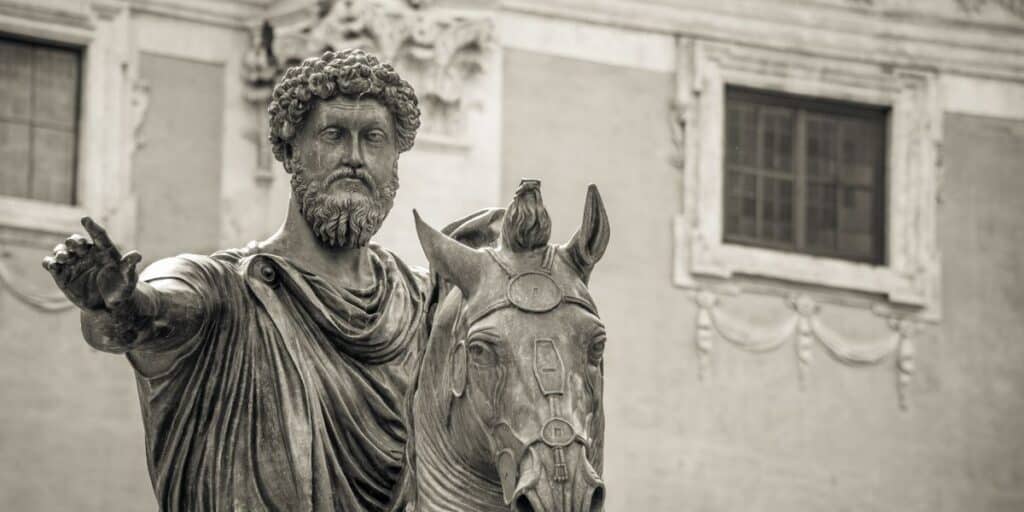Marcus Aurelius, the Roman emperor from 161 to 180 AD, is renowned for his leadership, wisdom, and philosophical outlook, particularly through his work Meditations. This personal journal, written primarily for himself, outlines his Stoic philosophy and approach to life, governance, and personal conduct. Despite being penned over 1,800 years ago, Aurelius’ lessons on leadership remain incredibly relevant in today’s fast-paced, technology-driven world.
In this article, we’ll explore key leadership principles derived from Marcus Aurelius’ Meditations and how they can be applied to modern leadership challenges. Whether you’re leading a business, a non-profit organization, or simply navigating a leadership role in your personal life, Aurelius’ Stoic insights can offer profound guidance.
1. Leading with Integrity and Authenticity
One of Marcus Aurelius’ central tenets was the importance of leading with integrity. In Meditations, he reminds himself to “waste no more time arguing about what a good man should be. Be one.”
In today’s business environment, integrity and authenticity are equally crucial. Consumers, employees, and stakeholders are drawn to leaders who are transparent, honest, and act with moral conviction. According to a study by the Harvard Business Review, businesses that prioritize authenticity and integrity foster greater trust and loyalty among employees and customers.
Application Tip: To foster integrity in your leadership, regularly reflect on your core values. Ensure that your actions align with these values, both in your personal behavior and in the culture you cultivate within your organization. Authenticity is not only a personal virtue but a competitive advantage in an era where corporate transparency is demanded.
2. Resilience in the Face of Adversity
Marcus Aurelius faced constant challenges, from wars and uprisings to personal tragedies. Yet, in Meditations, he famously wrote: “The impediment to action advances action. What stands in the way becomes the way.”
This concept of resilience—of turning obstacles into opportunities—is especially relevant in today’s leadership landscape. Modern leaders face unprecedented challenges, such as navigating economic crises, rapid technological changes, and global pandemics. Marcus Aurelius teaches us that these obstacles are not merely setbacks but opportunities for growth and improvement.
Application Tip: Embrace challenges as learning experiences. Encourage your team to adopt a problem-solving mindset, where setbacks are reframed as stepping stones toward innovation and growth. Building resilience within your organization fosters a culture of adaptability, which is essential in today’s volatile markets.
3. The Power of Emotional Intelligence
As a Stoic philosopher, Aurelius placed great emphasis on emotional control and rational decision-making. “You have power over your mind—not outside events. Realize this, and you will find strength,” he wrote. Aurelius believed that leaders should not be swayed by emotions like anger, fear, or impatience but should remain calm and level-headed in all situations.
Modern leadership research echoes this sentiment. Emotional intelligence (EQ) is now recognized as one of the most important skills for effective leadership. Leaders with high EQ are better at managing relationships, fostering teamwork, and handling stress.
Application Tip: Cultivate emotional intelligence by practicing self-awareness and self-regulation. Take time to reflect on your emotional responses and develop strategies for staying calm under pressure. This not only helps you make more rational decisions but also sets a powerful example for your team.

4. Prioritizing the Greater Good
Aurelius constantly reminded himself of his duty to the common good, rather than personal ambition. “What’s bad for the hive is bad for the bee,” he observed, underscoring the interconnectedness of society.
Today’s leaders must also focus on the bigger picture, balancing the needs of their organization with their responsibility to the broader community. Corporate social responsibility (CSR) has become a critical aspect of modern leadership, as businesses are increasingly expected to contribute to social, environmental, and ethical causes.
Application Tip: Lead with a sense of purpose that goes beyond profit. Engage in CSR initiatives that align with your company’s values and culture. Not only does this improve public perception, but it also enhances employee satisfaction and attracts talent who are looking to work for purpose-driven organizations. According to Forbes, companies with strong CSR programs report higher employee retention and customer loyalty.
5. Embracing Lifelong Learning and Humility
Despite being one of the most powerful men in the world, Marcus Aurelius never stopped learning and evolving. He frequently reflected on his limitations and sought to improve himself. “If someone can prove me wrong and show me my mistake in any thought or action, I will gladly change. For it is the truth I seek, and the truth never harmed anyone.”
In today’s world of constant change, leaders must embrace lifelong learning and maintain humility. Leadership is not about having all the answers but about being open to new ideas, perspectives, and feedback.
Application Tip: Foster a culture of continuous learning within your organization. Encourage your team to pursue professional development, stay curious, and be open to feedback. Moreover, as a leader, don’t hesitate to admit when you don’t know something—your humility will inspire others to do the same.
Conclusion
Marcus Aurelius’ wisdom offers timeless guidance for modern leaders. His emphasis on integrity, resilience, emotional intelligence, social responsibility, and continuous learning remains highly relevant in the 21st century. By applying these Stoic principles, today’s leaders can navigate challenges with grace, inspire their teams, and make a lasting impact on the world.
For more on leadership philosophy, check out Harvard Business Review‘s resources on leadership principles and Forbes‘ insights on corporate social responsibility.











